Everything Everywhere All At Once (2022) – Review/ Summary (with Spoilers)
Between depression, various “What if?” scenarios, and relationships in disrepair, it is all presented in the sometimes overwhelming Everything Everywhere All At Once.

Spoiler Alert: This summary and review contains spoilers.
Additionally, some images and text may include affiliate links, meaning we may earn a commission or receive products if you make a purchase.
Between depression, various “What if?” scenarios, and relationships in disrepair, it is all presented in the sometimes overwhelming Everything Everywhere All At Once.
| Director(s) | Dan Kwan, Daniel Scheinert |
| Screenplay By | Dan Kwan, Daniel Scheinert |
| Date Released | 3/24/2022 |
| Where To Watch | In Theaters |
| Genre(s) | Action, Adventure, Comedy, Drama, Fantasy, Romance, Sci-Fi, LGBT, Non-English (Chinese), Family |
| Duration | 2 Hours and 12 Minutes |
| Content Rating | Rated R |
| Noted Cast | |
| Evelyn Wang | Michelle Yeoh |
| Joy Wang/ Jobu Tupaki | Stephanie Hsu |
| Waymond Wong | Ke Huy Quan |
| Gong Gong | James Hong |
| Deidre | Jamie Lee Curtis |
Film Summary
Splitting itself into three parts, Everything, Everywhere, All At Once focuses on Evelyn who is dealing with the IRS wanting to audit her business, a borderline inept husband named Waymond, her seemingly aimless lesbian daughter named Joy, and her cruel visiting father Gong Gong. That is until a Waymond from what is known as the Alphaverse arrives and tells Evelyn she, the least successful of all the Evelyns in the multiverse, is needed to save everyone from Jobu Tupaki – a being whose mastery of universe jumping has reached dangerous, apocalyptic levels.
Things To Note
- Reason(s) for Film Rating: Cursing (Mainly for comedic effect than to be vulgar), Violence (Yes, but nothing gory. However, there is blood and open wounds – cuts from getting hit with weapons mostly), Sexual Content (Mainly sexual situations in the form of the use of butt plugs), Miscellaneous (vomiting and drinking)
- There isn’t a mid-credit or end-credit scene.
Character Descriptions
Please Note: This character guide is not an exhaustive list of every cast member, and character descriptions may contain what can be considered spoilers.
Evelyn
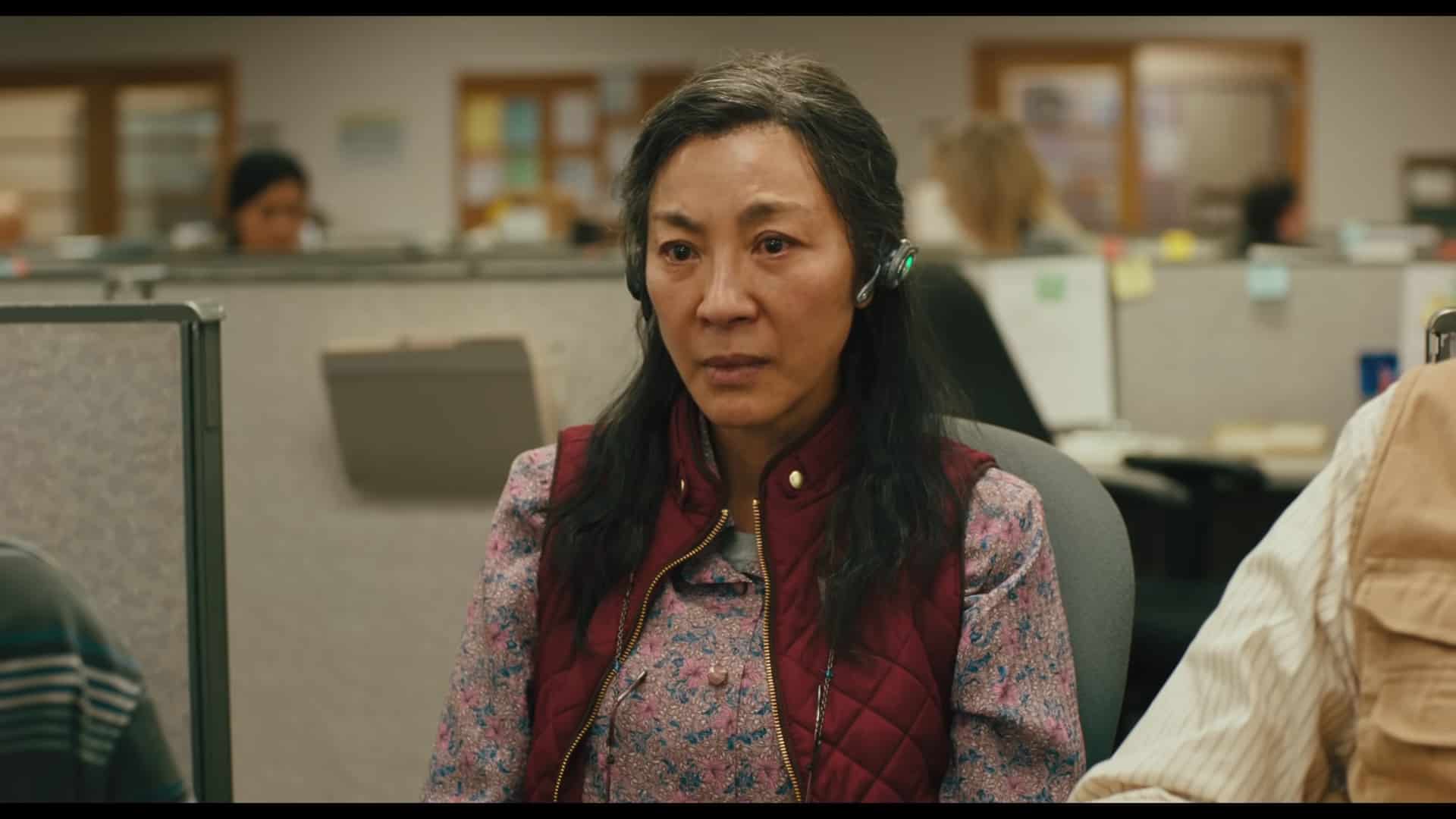
When we meet Evelyn, she is a Chinese immigrant who runs a run-down laundromat and owns a handful of apartments and is drowning in receipts due to the IRS auditing her. Leading to the idea this business venture, while it has lasted longer than her other pursuits, may end up yet another failure in her life.
Joy
Joy is Evelyn’s only child, who is a lesbian and seems a bit aimless. Because of this, their lack of communication, and her being a lesbian, Evelyn and her butt heads constantly.
Jobu
Jobu is the evolution of the Alphaverse’s Joy, who, after Evelyn discovers how to jump between universes, becomes one of her test subjects. Sadly, she also becomes the strongest and most dangerous for while most who jump as often as Joy have their mind fractured and die, Joy survived. However, with seeing and being able to access over 6,000 universes, it seems she has turned evil, and it is assumed she wishes to destroy the world.
Waymond
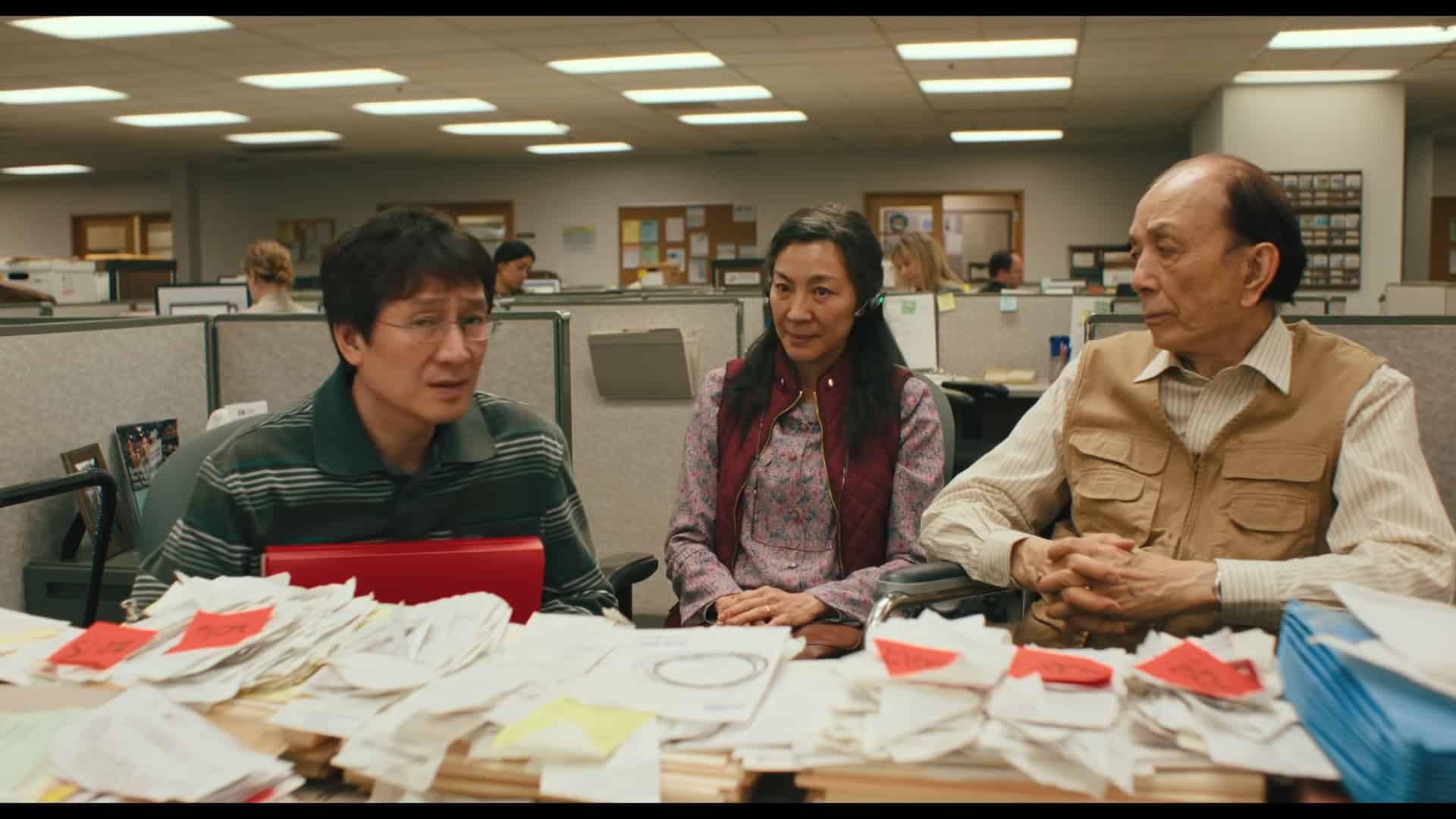
In Evelyn’s universe, Waymond is the soft-spoken and sweet husband who tries to make his wife happy, despite the task’s difficulty. But in the Alphaverse? Waymond whoops ass, takes names, and is tasked with finding the Evelyn capable of gaining the power to stop Jobu by any means necessary.
Gong Gong
Gong Gong is Evelyn’s father who disowned her after she left China with Waymond, and ever since then, she has tried her best to reconcile and have his words of disowning her be rescinded.
Deidre

Deidre is Evelyn’s assigned IRS audit agent in the original Evelyn’s world, but she has different roles in Evelyn’s life throughout the multiverse.
Review
Highlights
The Fashion
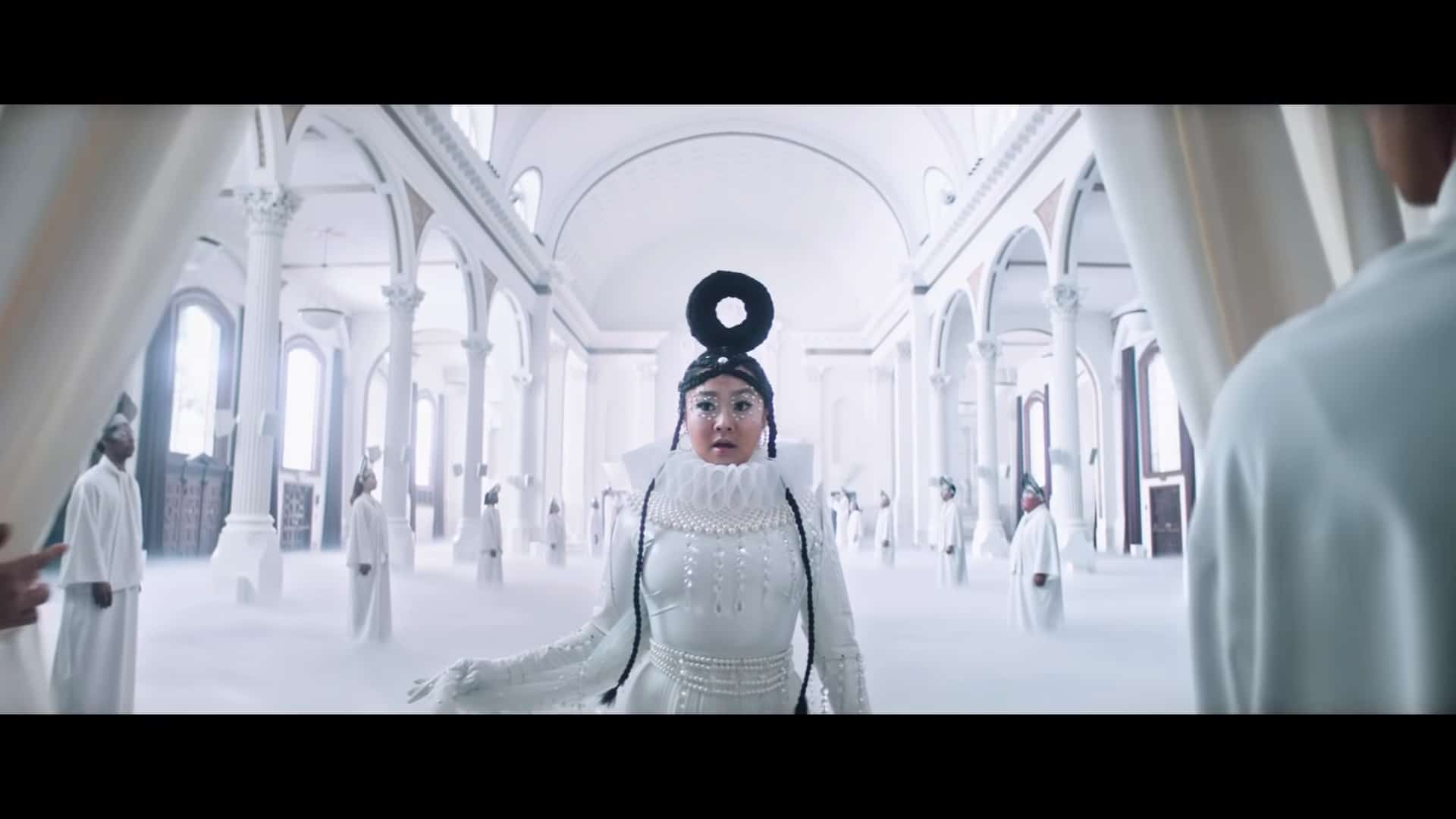
Jobu Tupaki, with them being able to connect to every form of themselves throughout the multiverse, is constantly switching up their look to the point of it being like an eyegasm. For whether it is a simple preppy look, made for a gal heading to a country club, or the bold colors of a Harajuku style, it is a delight to see each costume Jobu Tupaki wears, even if it often seems just for aesthetic purposes.
How Wonderfully Bizarre It Is
Be it the close quarters combat throughout the film includes using a small dog as a psuedo-Meteor Hammer, to the fashion mentioned above, or just how Evelyn and Jobu talk to one another or others, Everything Everywhere All At Once knows how to snag your attention.
But it isn’t just surface level. As we go into the topics below, Everything, Everywhere, All At Once really pushes the idea that there is nothing wrong with having strange things like people with hot dog-like fingers. However, the bizarre and fantastical should be the sugar that allows for less superficial exploration.
It’s Take On Depression
Everything Everywhere All At Once is by no means a dreary drama. It has loads of action, eccentric characters, and scenarios that make you laugh and raise an eyebrow. Yet, it also has characters, like Jobu Tupaki, dealing with depression. But rather than present it as it commonly is, with the person isolating, quiet, and things of that nature, it takes the idea of a person imploding and puts a spin on it.
Through listening to how much Jobu desires to stay numb, be destructive, seek escapism, and yet also long for understanding, you see the push and pull between wanting things to be better yet feeling hopeless. Heck, taking note of what the everything bagel symbolizes. The way it is presented, it is a black hole Jobu wants to be sucked into in order to end her longing for hope and put an end to feeling anything. This deepens the idea that, while Jobu is never diagnosed, we are meant to understand they are a person who is depressed with suicidal idealization.
The reason? Because the highs desired never peak as expected, and the length is never long enough to recover faith in humanity. Thus, there is a mutual demonization in some ways. We are pushed to see Jobu’s trauma and cries for help and how that can create a monster out of someone. Yet, until things were close to the end, no one acknowledged the lack of social niceties, and love with attainable conditions was the problem. I mean, not even Alphaverse Waymond takes much in the way of responsibility for his part in the creation of who he paints as a threat to the known universes.
Evelyn and Joy’s Relationship
At the heart of Everything, Everywhere, All At Once is a disjointed family struggling to reconnect. After years, if not decades of miscommunication, if there is communication at all, there is trauma, and sometimes just a feeling that there is no tough love between any two parties. Rather, it is just cruelty, if not outright malice. But the relationship you’ll first take note of is Evelyn and Joy’s, as this mother/ daughter relationship is the first to bloom and show Everything Everywhere All At Once wishes to be more than eye candy. For as the film dives into Evelyn either being embarrassed or unaccepting of Joy being lesbian, the foundation is set in more ways than one.
First, it is by showing how Evelyn doesn’t have any close relationships. Even with her own daughter, perhaps due to her relationship with Gong Gong, she doesn’t know how to connect and foster the kind of relationship that can be close once the child is no longer utterly dependent on their parent. Not only for money, but time, attention, and, most of all, affection.
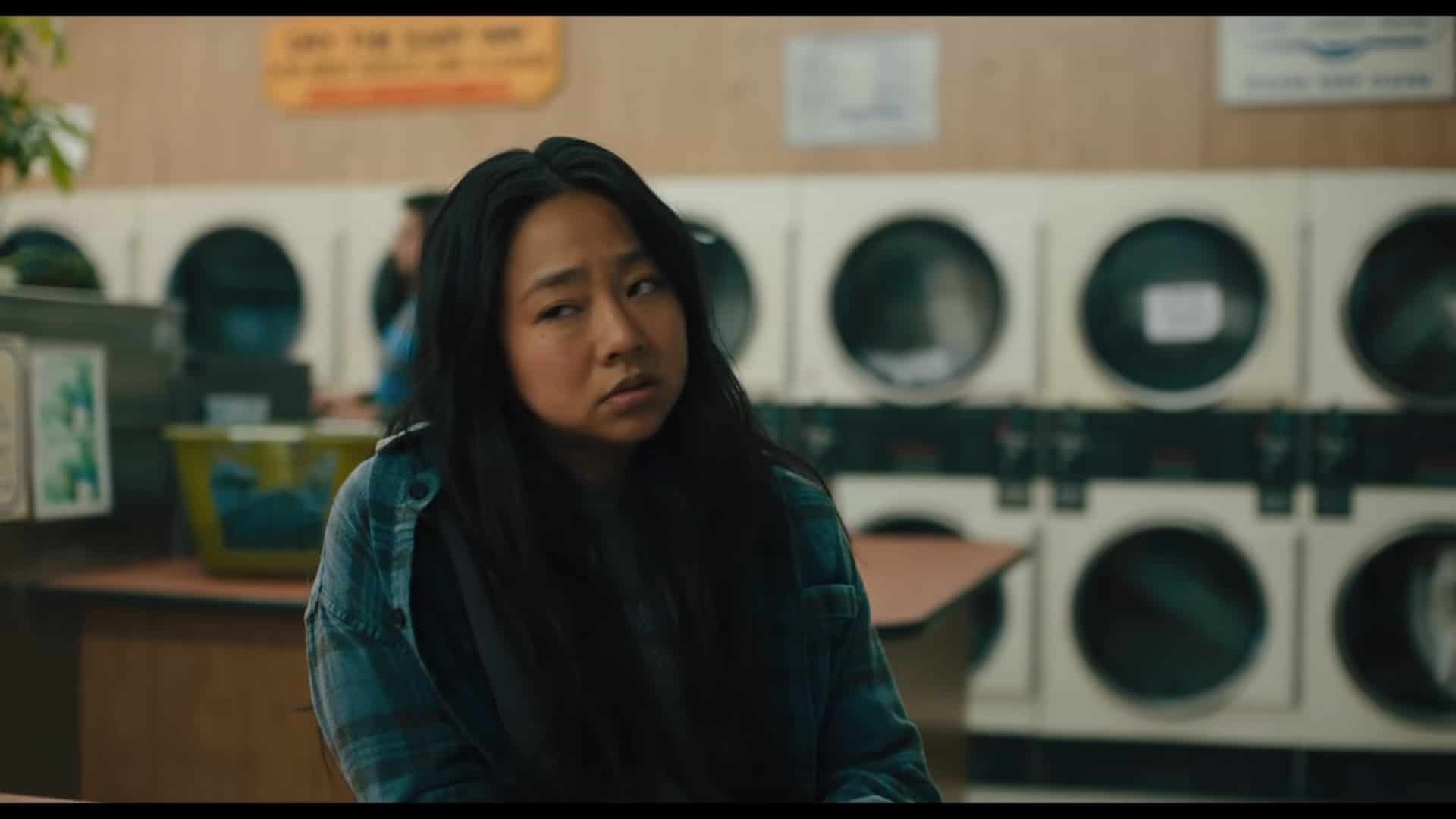
Following that, there is the idea Evelyn wanted more for her daughter, for her to not be like her, and how Evelyn’s own self-loathing affected their relationship. It is even noted, in another universe, Evelyn pushed her daughter to the breaking point, which didn’t lead to their relationship getting better at all. If anything, it created a seemingly insurmountable barrier to reconciliation, despite how much Joy just wanted her mother’s validation.
Though, perhaps what is the strong focus in all of Evelyn’s pursuits is understanding. Mind you, not other people understanding her, but rather Evelyn understanding other people. With Joy, it is about her getting that other people are unhappy with their lives and in some form of a rut that causes them anguish. Also, they try to numb themselves, too, as the pain becomes so deep that it is hard to remember when was the last time they were happy. And in Evelyn being reminded of what wonderful times she had with Joy as a child, we see the development of a mother/ daughter storyline like no other.
Evelyn and Waymond’s Relationship
With eventually gaining access to the multiverse, one of the things Evelyn sees is how her life would have been different if she had never immigrated to the United States with Waymond. Which, at first, seems blissful, but like with her relationship with Joy, it evolves as Evelyn is forced to see a different perspective. One that makes her realize what Waymond may not have as an individual, or even as manly qualities, they compliment Evelyn more than take away from her or her life. Thus, as you watch, it may feel like Joy’s storyline with Evelyn is made to butter you up, and then Waymond’s is what is meant to bring you to tears.
Low Points
Not Enough Being Done With Gong Gong Regarding Diving Into His And Evelyn’s Relationship
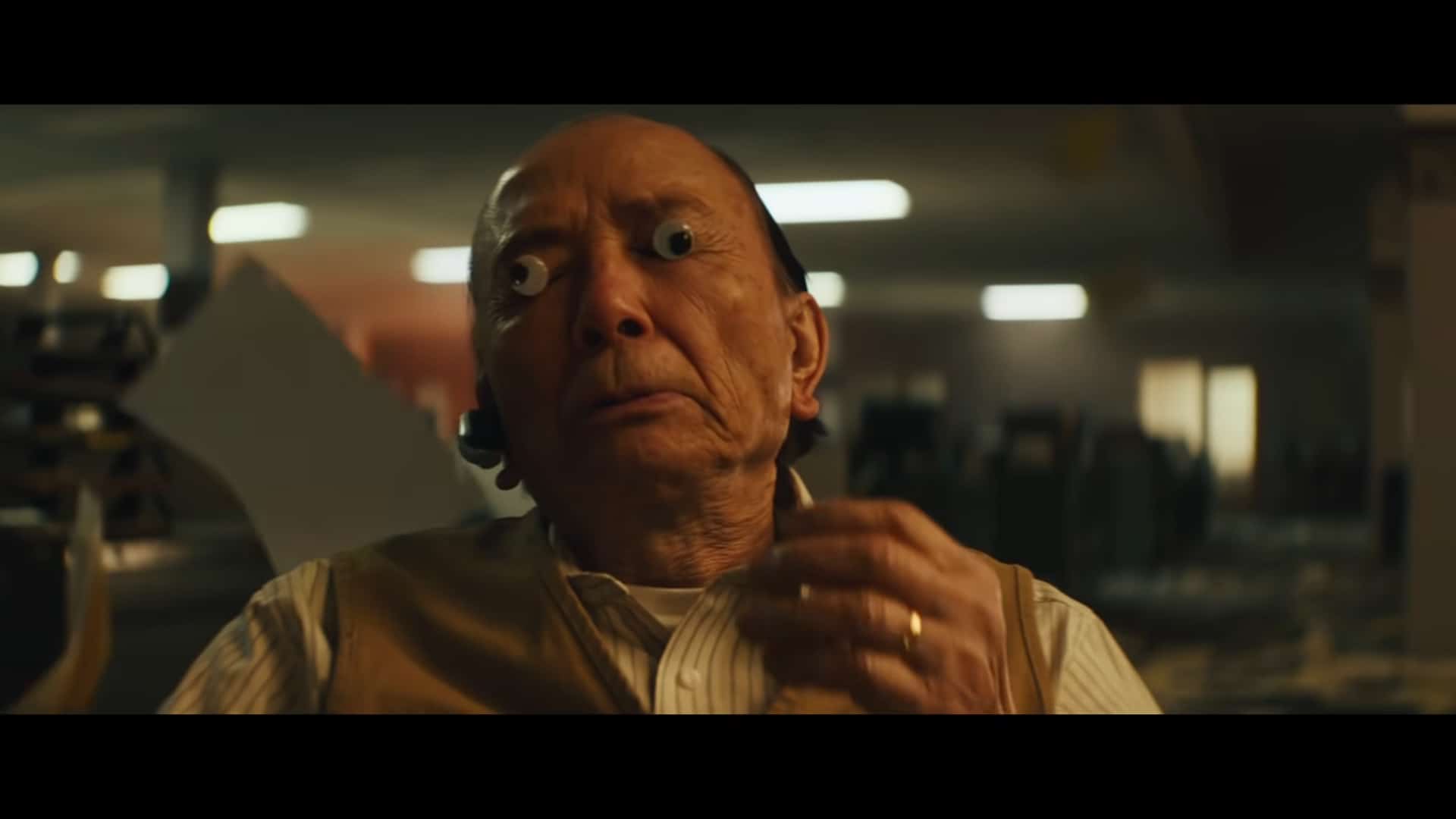
Despite how you see Evelyn’s relationship with her husband and daughter evolve, the same can’t be said for her father. There is an attempt at showing them reconcile, but by no means is it on par with what we see from Joy or Waymond. Rather, it is sort of like an afterthought. If not, the attempt made for him simply gets eclipsed by the dedication put into the other two. Which is a shame considering how deep the pain goes for Evelyn, that it likely was passed down to Joy.
On The Fence
The Fighting Is More About Style Than Impact
Finding any sort of fight scenes, outside of horror films, that makes each blow feel notable is rare. Like in Everything Everywhere All At Once, you’ll appreciate the style and choreography, but actually feeling the weight of every punch, kick, or hit of a weapon? That’s not there. Style is pushed over oomph or impact to the point where you’ll appreciate the time it took to plan out fight scenes, but likely won’t remember any for the actual blows landed. More so, what sticks to memory is how comedic some were—especially those with Jamie Lee Curtis as Deidre, Evelyn’s IRS auditor.
Overall
Our Rating: Positive (Worth Seeing)
If it wasn’t for it feeling like Gong Gong got the short end of the stick and that the fight scenes lacked that certain, “That looked like it hurt” vibe, we’d outright recommend Everything Everywhere All At Once. It has a bizarre fantasy/sci-fi/ action film with emotional depth and layered performances. But it is just too hard to get past the lack of sound or feeling like the fight scenes aren’t as well planned as a lip-sync performance. Never mind, with all seen with Waymond and Joy, that the source of Evelyn’s pain and inability to love wholly isn’t giving an on par, if not surpassing treatment.
[ninja_tables id=”46802″]
Images used for editorial and commentary purposes. All rights remain with their respective copyright holders.


